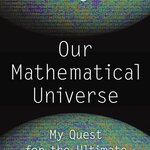
A hundred years ago, progressive efforts to bring about Utopia led to eugenics and social Darwinism, efforts to breed out undesirable traits by sterilizing people who had them. The concept was endorsed by luminaries such as the author H.G. Wells, economist John Maynard Keynes and Supreme Court Justice Oliver Wendell Holmes. Oh, and eventually the New York Times and Adolph Hitler.
Racism as a social and scientific concept recurs periodically and researchers need to be careful that the growth of genomics does not bring about another resurgence of scientific racism, according to anthropologist…





